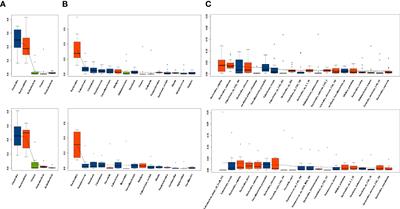EDITORIAL
Published on 21 Dec 2022
Editorial: Factors determining long term anti-tumor responses to immune checkpoint blockade therapy
doi 10.3389/fimmu.2022.1120207
- 729 views
29k
Total downloads
83k
Total views and downloads
Select the journal/section where you want your idea to be submitted:
EDITORIAL
Published on 21 Dec 2022
ORIGINAL RESEARCH
Published on 24 Nov 2022

ORIGINAL RESEARCH
Published on 25 Oct 2022

ORIGINAL RESEARCH
Published on 01 Jul 2022

SYSTEMATIC REVIEW
Published on 06 May 2022

CASE REPORT
Published on 28 Apr 2022

CASE REPORT
Published on 17 Mar 2022

ORIGINAL RESEARCH
Published on 24 Feb 2022

ORIGINAL RESEARCH
Published on 03 Feb 2022

REVIEW
Published on 11 Jan 2022

ORIGINAL RESEARCH
Published on 02 Dec 2021

REVIEW
Published on 24 Nov 2021


Frontiers in Oncology